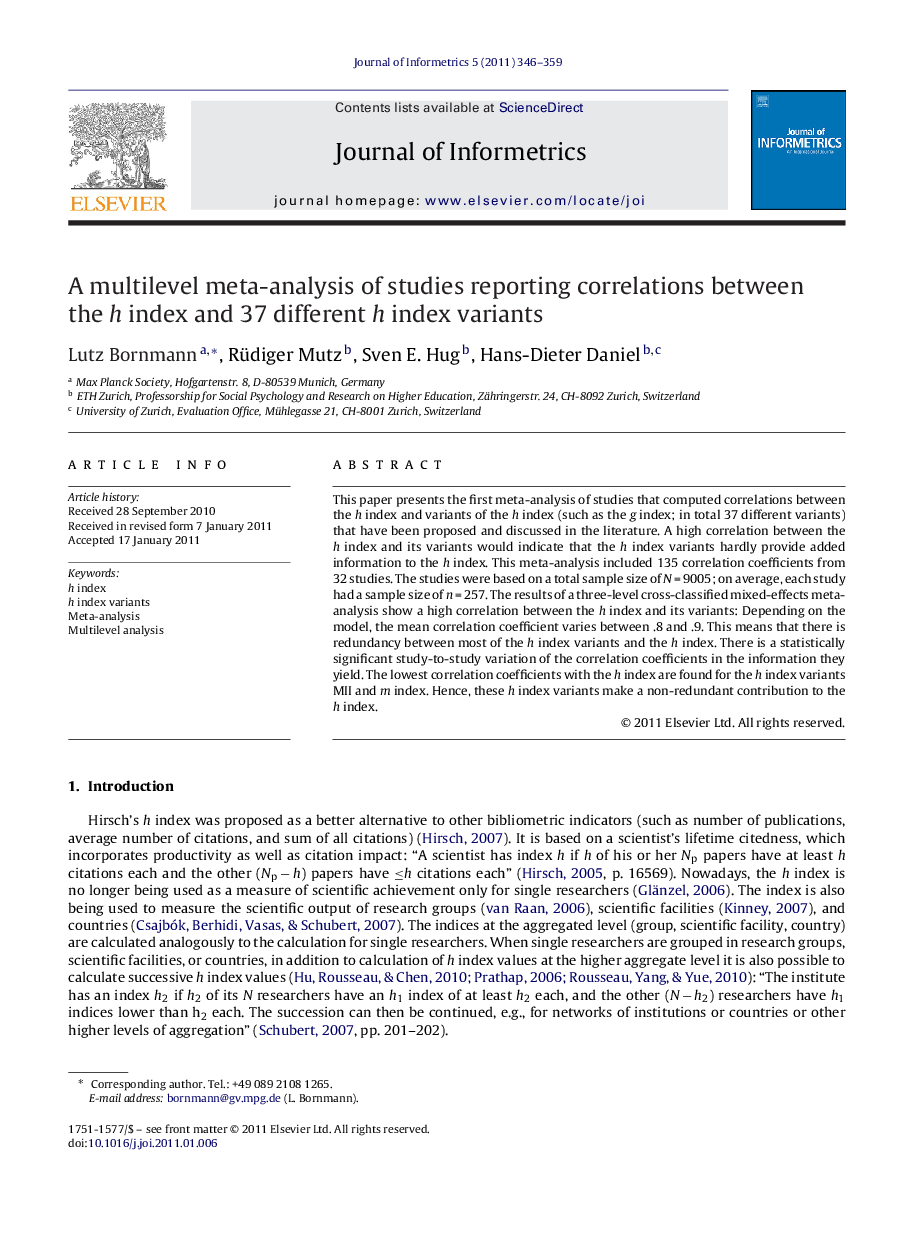| Article ID | Journal | Published Year | Pages | File Type |
|---|---|---|---|---|
| 524062 | Journal of Informetrics | 2011 | 14 Pages |
This paper presents the first meta-analysis of studies that computed correlations between the h index and variants of the h index (such as the g index; in total 37 different variants) that have been proposed and discussed in the literature. A high correlation between the h index and its variants would indicate that the h index variants hardly provide added information to the h index. This meta-analysis included 135 correlation coefficients from 32 studies. The studies were based on a total sample size of N = 9005; on average, each study had a sample size of n = 257. The results of a three-level cross-classified mixed-effects meta-analysis show a high correlation between the h index and its variants: Depending on the model, the mean correlation coefficient varies between .8 and .9. This means that there is redundancy between most of the h index variants and the h index. There is a statistically significant study-to-study variation of the correlation coefficients in the information they yield. The lowest correlation coefficients with the h index are found for the h index variants MII and m index. Hence, these h index variants make a non-redundant contribution to the h index.
Graphical abstractFigure optionsDownload full-size imageDownload as PowerPoint slideResearch highlights► The mean correlation between the h index and variants of the h index (such as the g index) varies between .8 and .9. ► There is redundancy between most of the h index variants and the h index. ► The h index variants MII and m index make a non-redundant contribution to the h index.
